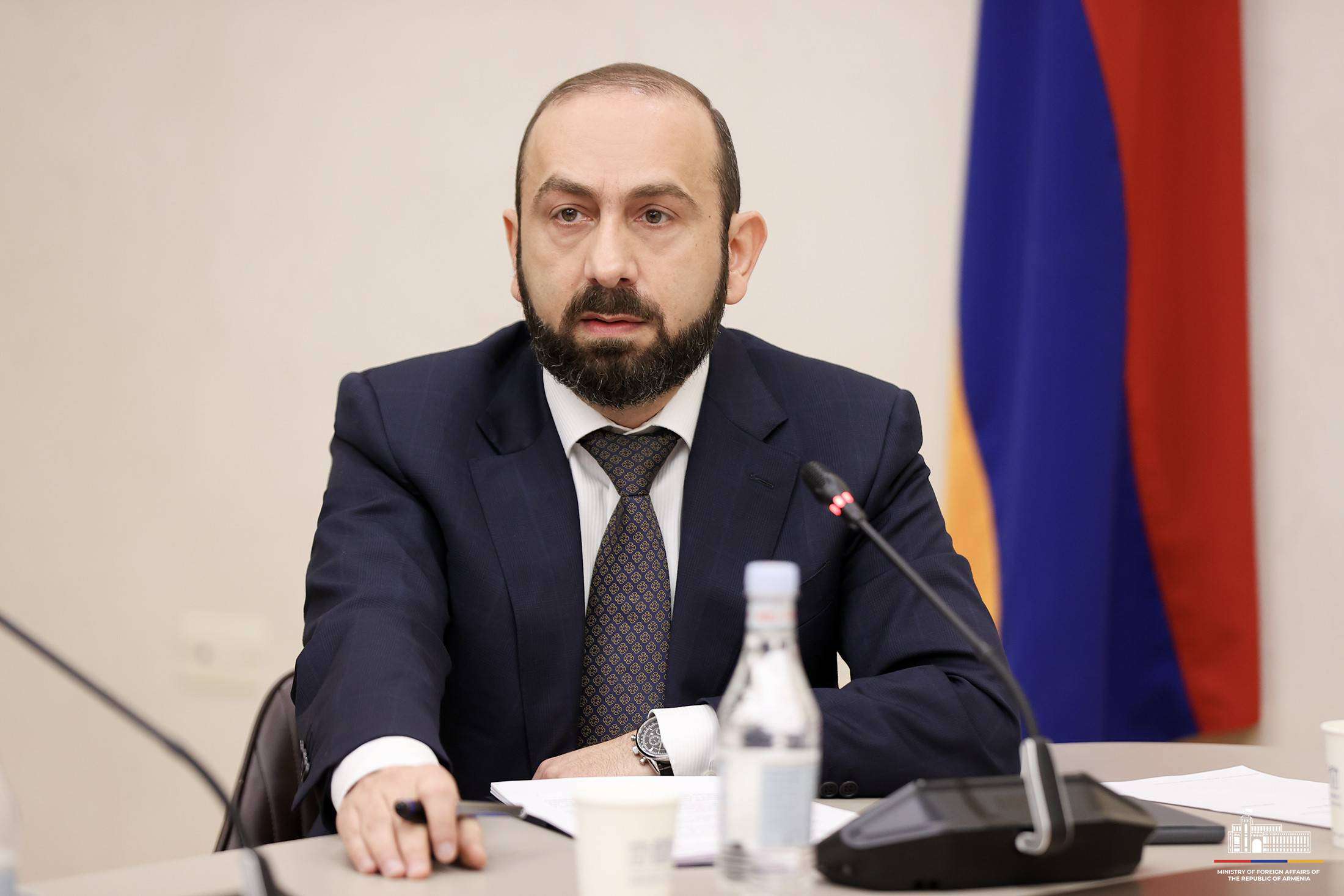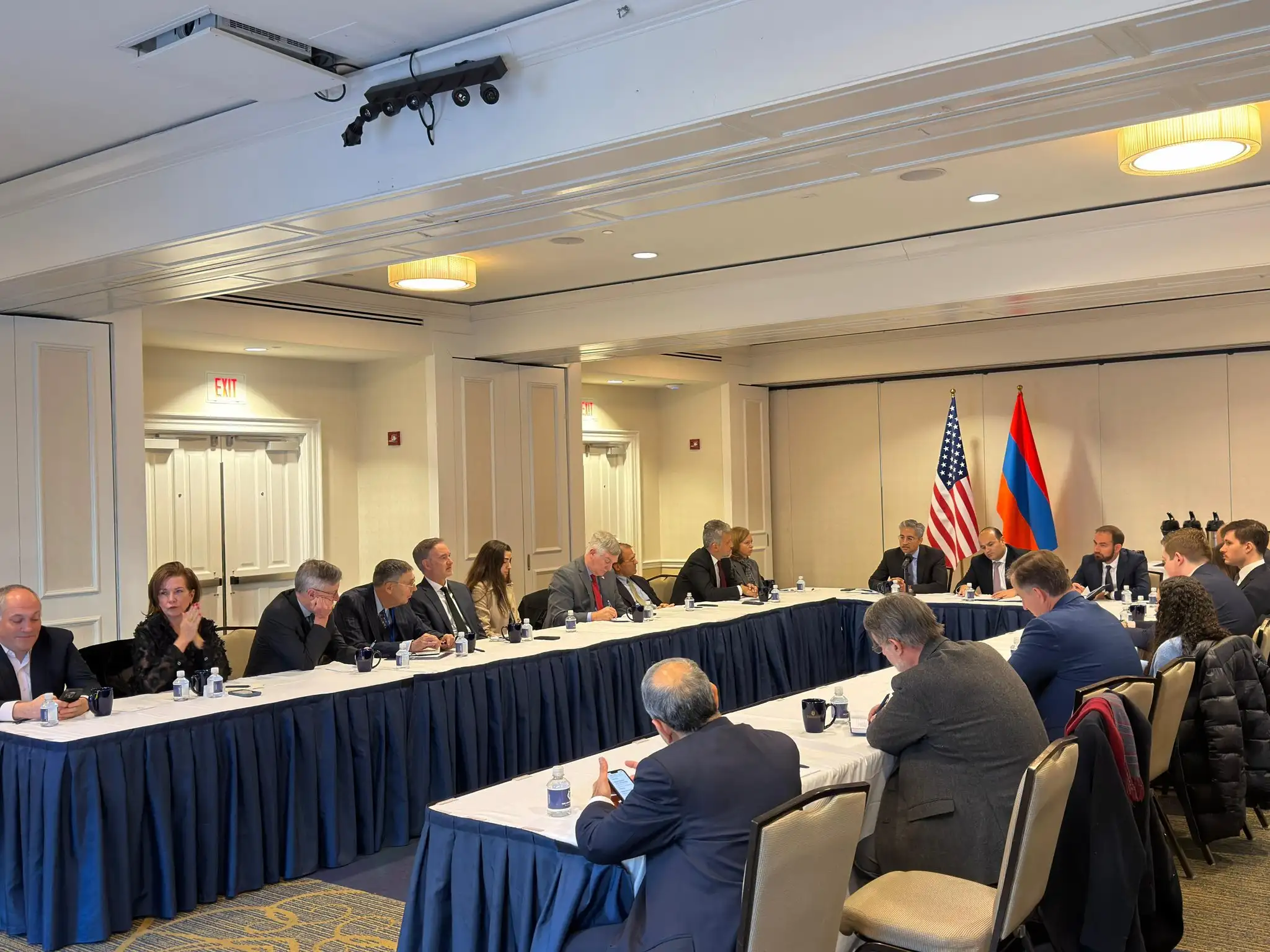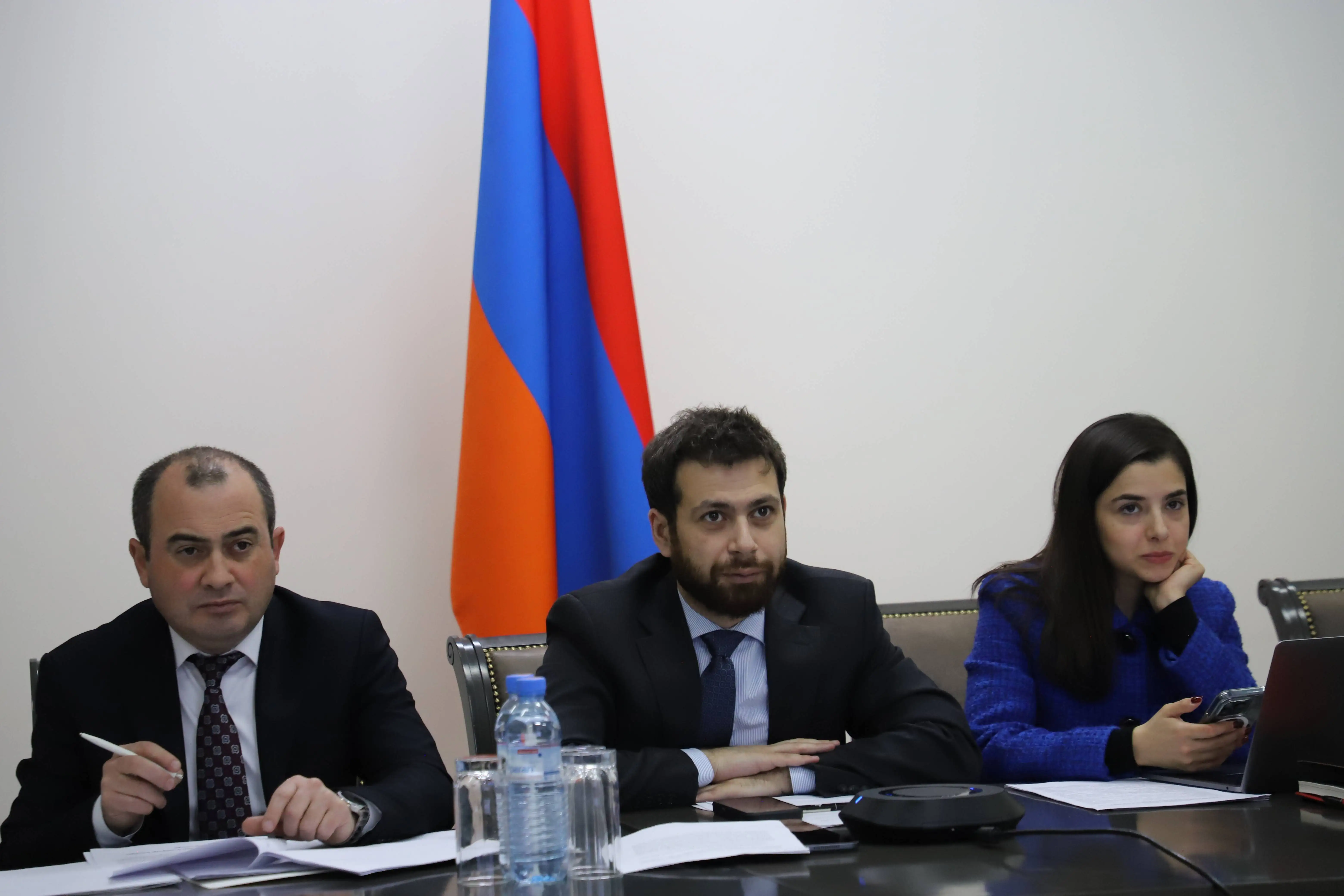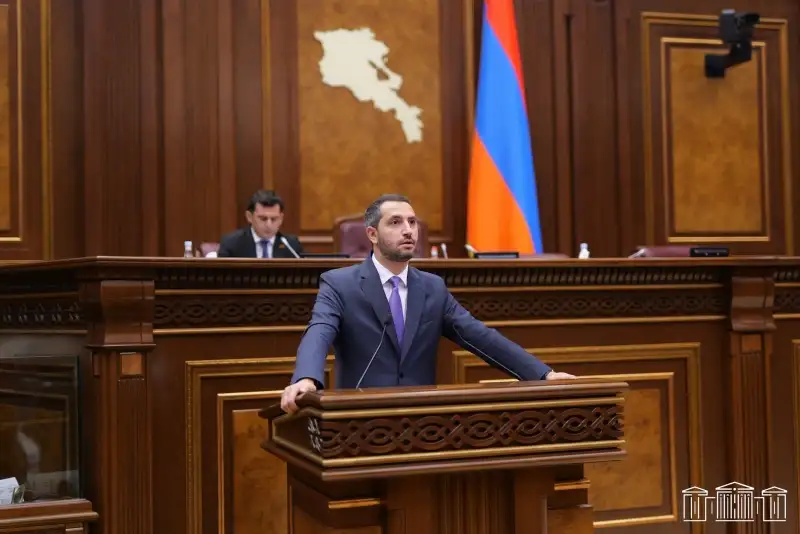RA Foreign Minister Ararat Mirzoyan delivered a report at the NA Standing Committee on Foreign Relations session, where he also touched upon the peace agreement with Azerbaijan. Mirzoyan's speech in full is below:
"Dear colleagues, I will deliver a report on the progress and results of implementing the Government of the Republic of Armenia Program (2021-2026) for 2024. However, I also understand that a significant event occurred yesterday, and statements were made. There are questions and concerns in society. I want to touch on this briefly, and then they can address other issues. I wish to inform the journalists that if there are any open questions, I intend to continue the conversation after the session, and I will try to answer a few questions. I hope you will have the opportunity to finish today; I will avoid any open questions.
So, yesterday, the Ministries of Foreign Affairs of both the Republic of Armenia and Azerbaijan announced that the negotiations on the peace agreement have been completed, and the text has been agreed upon after lengthy negotiations. This is a significant milestone in normalizing relations and establishing peace in the region around us, the Republic of Armenia. As I mentioned, the text has been agreed upon; the Republic of Armenia proposes to start consultations with Azerbaijan as soon as possible to decide on the place, time, and other details of the signing of the agreement. Also, as I said, some questions have arisen; there are speculations. Of course, we will talk in detail during the question-and-answer session, but I want to say a few things at once.
Dear colleagues and dear citizens, the text of the agreed agreement does not contain a provision about the so-called "corridor." The agreement also does not describe the mechanisms for lifting the blockade. However, there is a bilateral willingness to cooperate in various areas, including transport, transit, and economic issues. This concern must be dispelled from the perspective of the context of problems in which we perceive the "corridor" and about which conditions have been voiced from different sides.
On the other hand, our approach to lifting the blockade is very well-known and public and has not changed. We have presented this approach and informed the public that we have offered a very constructive, mutually acceptable proposal to the Azerbaijani side. That proposal is as follows: First, unblock the railways and give the two countries the opportunity to use each other's railway networks. Like the rest of the world, we can somewhat simplify the border-crossing process to ensure a smooth cargo flow. Still, as before, now, and tomorrow, it is an unbreakable understanding and condition for us that all infrastructures that will be unblocked will remain and will operate under the sovereignty of the countries on whose territory they are located. In other, more straightforward words, all railways, roads, and infrastructure of the Republic of Armenia will remain. They will operate under the sovereignty of the Republic of Armenia and by the legislation. We also believe that, as before, there is no need for any third party to control these infrastructures; for example, various mechanisms known to the civilized world can be used to ensure cargo safety.
The agreed text does not provide that the territories of the two countries were inhabited before the collapse of the Soviet Union and that people who have left the territories must return to their homes or to the territories where their ancestors lived. We heard the Azerbaijani side's interpretation of the Constitution of the Republic of Armenia. Naturally, there is nothing about this in the agreed text of the agreement again.
In general, there is no unilateral regulation in the agreement's text. There is also no regulation on constitutions. It is also known that we have our concerns about the Constitution of Azerbaijan. It is known that we see specific aspirations there towards the territorial integrity of the Republic of Armenia, but it is also known that we have specific provisions in the text of the agreement that dispel them. Even if, and we are sure that we do not, and we have, at least in terms of our Constitution, the corresponding position of our Constitutional Court on another occasion—the well-known position of the Constitutional Court in the process of approving and ratifying the regulations of the Border Delimitation Commissions, which is a clear guideline and dispels all concerns. But even if there are such demands in the Constitution, we can consider these issues closed once and for all by signing and ratifying the agreement's text; by the way, this ratification must again pass through our Constitutional Court.
Anyway, in any case, as with any peace agreement, Agir, it is essential that we remember several critical circumstances when making judgments. For example, a peace agreement, always, at least in all instances from history that I know of, or as far as I understand the theory, is always concluded between countries that up until that moment had enmity towards each other, war, victims, and therefore do not build peace with friends, develop relations with friends. In our case, too, it is clear that there was a war and years of enmity on both sides, and I want to emphasize the second observation about peace agreements. In general, any peace agreement, at least as far as I know from history, I do not remember any other case, does not provide answers to all possible questions at once, does not immediately make two countries and peoples friends, does not make them collaborators with a magic wand. Of course, there are many issues, including sensitive and super-sensitive ones, which must then be discussed and regulated; both the agreed text of our peace agreement and the text ready for signing are also no exception. However, it is important to note, for example, that this agreement provides mechanisms that we and Azerbaijan can use after the agreement enters into force to resolve issues and finalize relations.
For example, let me make a small note here. Of course, you understand, dear colleagues, that I am somewhat constrained to quote or open the text of the agreement verbatim, but the Prime Minister also said this. The content is generally known to everyone, and I want to say that the agreement provides mechanisms for continuing discussions toward normalizing relations.
What was again speculated and caused specific concerns? The Minsk Group. I know you will ask; it is interesting. Our position on the Minsk Group is also known. We believe that after the normalization of relations, at least after the implementation of such an essential step as the signing of a peace agreement, or to be more precise, an agreement on the establishment of peace and relations between the Republic of Armenia and the Republic of Azerbaijan, we can consider that in institutional terms, the already documented, if one may say so, the conflict has come to an end. At that moment, we can already tell there is no need for the activity of the Minsk Group. Until now, unfortunately, we see that some elements of rhetoric and deconstructiveness, which we continuously encounter from the Azerbaijani side, are worrying for us precisely in this context. I want to state our position again clearly: when we have a signed peace agreement, we will also have reservations regarding the further activity of the Minsk Group.
I also encountered one concern and anxiety. "I want to assure you that any provision, any agreement, envisaged or agreed upon in the agreement can be implemented after the agreement is signed, ratified, and enters into force. I did not think that there would be speculation on this topic and that there would be a need to address this. Of course, there will be more questions, and I will continue to present our positions."




















